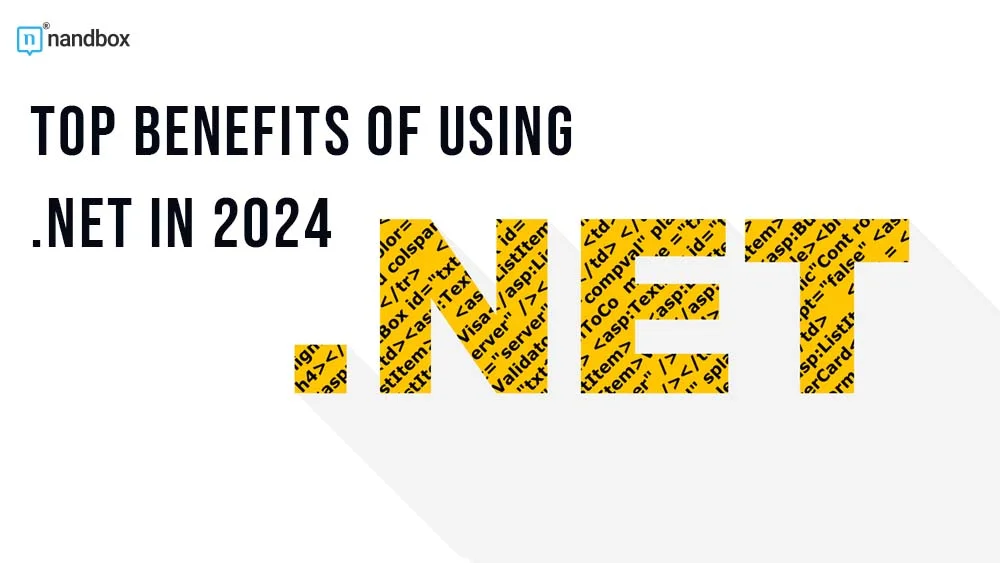If you’ve ever taken any interest in web development (or related themes), you should have heard about .NET. It’s versatile, powerful, and super relevant in 2024. Let’s explore why and see what are the benefits of using .net framework for your projects.
The Definition of .NET Web Development
So, what is .NET development exactly? Well, .NET as such is a free, open-source development framework from Microsoft. It has different tools and open libraries, and they all make it easier to build, deploy, and maintain web apps. That’s, in fact, the main reason why so many businesses consider hiring or hire .NET developers today. Another factor is that the framework supports multiple languages, like C#, F#, and Visual Basic. So it’s pretty versatile, too.
To get a better idea of how it works, let’s say you’re building an e-commerce site. With NET development, you can develop the frontend, and backend, and even integrate cloud services. The framework ensures that your site is secure, scalable, and high-performing. Plus, the vast library of pre-built components speeds up development. You, in turn, can focus on creating a stellar user experience (far more exciting, isn’t it?).
.NET Web Development Market Overview
Let’s get into the market details for a while. The .NET framework has a significant presence in the development market. Developers praise it for superb documentation and knowledge-sharing opportunities. And what else is attractive about .NET for web development? Well, these are among the most commonly cited strengths:
- reliability,
- performance,
- and security features.
In 2024, the demand for NET application development is rising due to several factors. Firstly, there are continuous updates and enhancements by Microsoft. They keep the framework relevant and powerful. Secondly, there are great integration capabilities with cloud services like Azure. These are super important for modern web applications. Lastly, there is strong community support and the aforementioned extensive documentation. Thanks to these, developers can easily find solutions and best practices.
What Are the Types of Applications Built with the .NET Framework and what are the benefits of using the .NET framework?
Cloud-based Services
Cloud-based services are a big deal these days, and .NET application development is perfect for building them. Because it integrates with Microsoft Azure, you can develop robust, scalable cloud apps.
For instance, consider a healthcare provider who wants a wireless healthcare system. Under this scenario, developers can turn to .NET, and the latter can create a cloud-based service that will store and process patient data. The number of the system’s users will grow with time and because the framework is perfectly scalable, the application will handle increased load well.
Content Management Systems (CMS)
CMSs are another area where .NET excels. You’ve probably heard about platforms like Umbraco and DNN. So these are built on .NET. They are good examples of how flexible and powerful the solutions based on this framework are.
Let’s imagine for a while that you’re a large media company. And you need a data management system to manage tons of daily content. You turn to .NET-based CMS platforms and get robust features like
- multi-language support,
- easy content editing,
- and advanced security measures.
In other words, you get a system that fully streamlines your content management. Your team is now (at last!) able to focus on the quality of the content as such.
Web Apps
Then, there are also web apps. They are perhaps the most common applications built with .NET. These are simple websites, complex enterprise applications, and all other responsive apps based on the framework’s tools and libraries.
For example, a financial institution could very well develop an entire online banking system using .NET. The framework’s security features would protect sensitive financial data, while its performance optimization would guarantee a smooth user experience. Plus, the app would integrate with various APIs to provide real-time updates and services to users. So the latter would be happy with the experience.
How can .NET Web Development Boost Your Business
Let’s sum it up now and see what exactly .NET development can do for your business should you decide to turn to it.
-
Security
Security always matters. And it especially matters when dealing with sensitive data. One reason why so many developers prefer .NET to other frameworks is its built-in security features such as
- code access security,
- role-based security,
- and cryptography.
These features do well in protecting your apps from threats. Thanks to them, all of your data is integral and confidential.
-
Performance
.NET is designed to create high-performing applications. It’s the framework’s core role. And, of course, it has a lot of features that help web apps run faster and more efficiently:
- just-in-time compilation,
- caching services,
- optimized code execution.
Your business can thus handle growing user demands but this won’t impact its performance anyhow.
-
Cost-Effective Development
Development with .NET is generally cost-effective as you access a wide range of libraries and tools that accelerate the process and reduce time-to-market. Plus, as we already said, the framework’s compatible with multiple platforms so there’s normally no need for redundant coding.
Final Thoughts
All in all, there are sound reasons to claim that .NET is the primary choice for web development in 2014. We explored the benefits of using .net framework. It’s secure, scalable, and cost-effective. This is enough to create high-performing applications.




